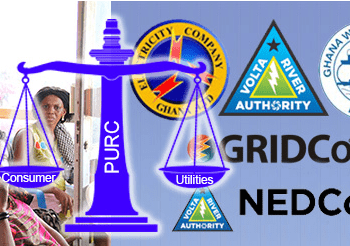The Civil Society Organizations (CSO) Alliance has called for transformative policy reforms to strengthen governance and align Ghana’s extractive and energy sectors with global sustainability goals.
Speaking at a press conference in Accra on January 22, 2025, the Alliance outlined a comprehensive set of recommendations to address the challenges and opportunities facing the country’s resource-dependent economy.
The Alliance emphasized the need for decisive action to enhance governance and efficiency in Ghana’s extractive industries.
“Government must streamline the country’s petroleum sector regulations to improve consistency and efficiency in governance.
“Clearer regulatory frameworks would enhance investor confidence and ensure compliance with international best practices.”
Civil Society Organizations (CSO) Alliance
Citing existing Petroleum Agreements, the CSO Alliance urged the government to prioritize domestic crude oil supply for local refineries. This measure would reduce Ghana’s dependence on imported refined products, strengthen the local petroleum industry, and lower costs for consumers.
Acknowledging financial pressures on the energy sector, the Alliance suggested exploring partial privatization of key state-owned entities. This approach, it argued, could provide much-needed capital while maintaining strategic control over critical assets.
The CSO Alliance underscored the importance of creating a favorable business environment to attract investment, particularly in renewable energy projects. Transparent regulatory frameworks, stable policies, and efficient permitting processes are critical to fostering investor trust.
“By building investor confidence, Ghana can unlock significant financing for its energy transition and sustainable development goals,” the Alliance stated.
Ghana faces the dual challenge of leveraging its natural resources for economic growth while meeting international climate targets.
As a signatory to the Paris Agreement, the country is committed to reducing emissions and transitioning to sustainable energy systems. However, balancing these objectives with economic demands requires careful planning and robust policies.
Advancing Ghana’s Energy Transition

With global momentum shifting toward renewable energy, the Alliance commended the Ministry of Energy for adding “Green Transitions” to its portfolio. However, it stressed the need for a more integrated and coordinated approach to achieve tangible results.
“The government should establish a coordinating body, modeled after Nigeria’s Energy Transition Implementation Working Group or South Africa’s Presidential Climate Commission.
“This entity would oversee cross-sectoral efforts and ensure alignment with international climate commitments.”
Civil Society Organizations (CSO) Alliance
The development of a comprehensive energy transition strategy was highlighted as a priority. This strategy would serve as a roadmap for scaling renewable energy investments, reducing greenhouse gas emissions, and ensuring a just transition for communities reliant on traditional energy sectors.
Ghana’s wealth of green minerals, such as lithium and cobalt, positions it to play a key role in the global clean energy supply chain. The Alliance advocated for resource mapping and value addition to maximize the economic benefits of these resources while supporting the country’s energy transition goals.
The Alliance expressed its readiness to collaborate with the government to implement the proposed reforms. “By working together, we can transform Ghana into a leader in governance and sustainable development on the continent,” the Alliance said in its statement.
It pledged to support initiatives that prioritize transparency, accountability, and the well-being of future generations, framing these principles as essential for long-term resilience.
The Alliance called on the government to act swiftly on its recommendations, stressing their importance in ensuring the sustainability of Ghana’s extractive and energy sectors.
As Ghana grapples with the complexities of resource management and climate action, the CSO Alliance’s recommendations provide a roadmap for achieving sustainable growth.
By addressing governance challenges, fostering transparency, and embracing renewable energy, the country has an opportunity to position itself as a regional leader in sustainable development.
The Alliance’s call to action underscores the critical need for bold and decisive leadership to navigate this pivotal moment in Ghana’s economic and environmental journey.
The next steps taken by the government will determine the trajectory of the country’s extractive and energy sectors, shaping the legacy of this generation and the opportunities available to future ones.
READ ALSO: Parliament Restricts Access to Ministerial Vetting for Security and Order























